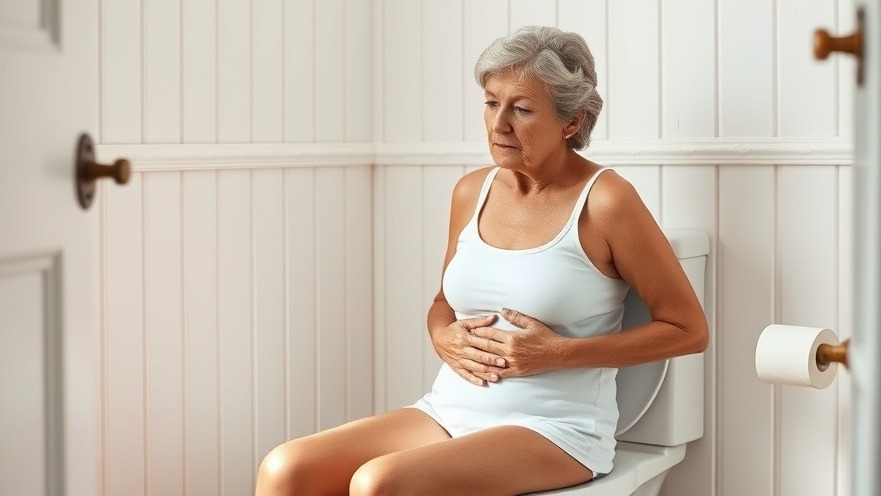
Understanding Defecation: Why Poop Position Matters
As we age, our bodies often present new challenges, and constipation is an all-too-common issue for many people, particularly seniors. In the video "Friday Favorites: The Best Poop Position for Constipation," interesting insights are shared about how body position impacts our ability to defecate effectively. The speaker discusses the contrast between traditional squatting positions used in various cultures versus the sitting positions so prevalent in Western society. Surprisingly, the link between pooping positions and bowel health isn't widely discussed, yet it's an important topic for maintaining our overall well-being.
In "Friday Favorites: The Best Poop Position for Constipation," the discussion dives into bodily function and defecation, prompting key insights that we aim to expand upon in this article.
Squatting vs. Sitting: A Global Perspective
In many parts of Asia and Africa, squatting is the preferred position for defecation. This position facilitates a more natural angle for bowel movements, efficiently aligning our anatomy to promote ease of elimination. Conversely, many Westerners find themselves sitting upright on porcelain thrones—a position that can force the poop to make a challenging 90-degree turn, potentially leading to discomfort and straining. The ergonomic benefits of squatting in promoting healthy bowel movements are echoed by some health professionals, suggesting that sometimes, cultural habits can hinder our natural bodily functions.
The Science Behind the Squatty Potty
One innovative solution introduced is the Squatty Potty, a toilet stool designed to mimic the squatting posture. Research noted in the video suggests that using such devices can reduce straining during bowel movements, leading to a quicker and more comfortable experience. Though the stool may seem awkward initially, the angles achieved while using it can create significant health benefits. Health advocates recommend exploring this simple tool as part of an overall strategy to combat constipation.
Rethinking the 'Thinker' Position
Interestingly, the video touches on alternative positions, like "The Thinker" pose, made famous by Rodin's sculpture. Studies reveal that leaning forward can enhance the angle of the anus and rectum, potentially offering a more efficient method for defecation. Those struggling with constipation might benefit from adopting this posture instead of resorting to supplements or harsher remedies.
Beyond Position: The Role of Diet
Ultimately, adjusting our dietary habits is crucial when addressing constipation issues. While positions certainly matter, consuming adequate fiber from natural foods can help mitigate the need to alter bodily functions significantly. Incorporating fruits, vegetables, and whole grains into our meals ensures our digestive systems operate optimally. Those who have experienced constipation are encouraged to evaluate their nutritional intake alongside any physical adjustments they might consider.
Implications of Defecation As We Age
It's vital to recognize that difficulties with bowel movements can lead to significant health risks, especially for seniors. The video points out startling statistics regarding the correlation between straining during defecation and heart issues. As such, it's essential to be proactive: whether that means employing squatting aids, adopting better positions while eliminating, or refocusing on a nutritious, fiber-rich diet.
Maintaining an open conversation about often-ignored bodily functions promotes better health outcomes as we age. Exploring the interplay between poop position, dietary choices, and improving our overall health is vital for seniors. As we gain knowledge on these topics, we foster a stronger community that cares for each other's well-being. Staying proactive in our health care routines makes all the difference, ensuring that we can enjoy more years of vitality and engagement with life.
For middle-aged and senior audiences, prioritizing gut health and recognizing its importance in our daily lives can lead to better outcomes. Implementing simple changes to our habits can bring relief and support overall health as we age. If you're struggling with constipation, consider trying different positions during defecation or revamping your diet to include more fiber.
 Add Element
Add Element  Add Row
Add Row 



Write A Comment